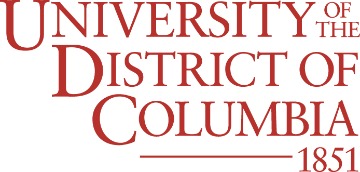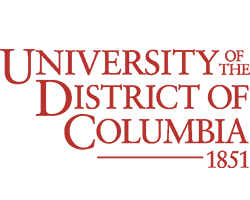
USDA announces specialty crop block grant program funding awarded to District of Columbia

August 25, 2022
Leeann Hall
Vice President, Marketing and Communications
leeann.hall@udc.edu/ 202.934.5047
U.S. Department of Agriculture
Public Affairs
PA@usda.gov/202.720.8998
FOR IMMEDIATE RELEASE
USDA announces specialty crop block grant program funding awarded to District of Columbia
WASHINGTON – The U.S. Department of Agriculture’s (USDA) Agricultural Marketing Service (AMS) today awarded $243,000 in the Fiscal Year 2022 Specialty Crop Block Grant Program (SCBGP) funding to the District of Columbia. This USDA grant will help the University of the District of Columbia (UDC) fund projects that enhance the competitiveness of specialty crops in the state and support specialty crop growers through marketing, education and research.
“USDA applauds the District of Columbia’s continued commitment to supporting our nation’s producers of fruits, vegetables, tree nuts, and nursery crops through the Specialty Crop Block Grant Program,” said USDA Under Secretary for Marketing and Regulatory Programs Jenny Lester Moffitt. “The projects funded will foster innovative research and new market opportunities within the specialty crop sector, while furthering USDA’s goals of creating a more fair and equitable food system and supporting local and regional producers.”
UDC administers the SCBGP in the District. As the District’s only public institution and exclusively urban land grant and emerging research university, UDC is focused on programs of improving food security and mitigating climate change, increasing green-economy jobs and small businesses, and diminishing food deserts in the nation’s capital by promoting closed-loop food hubs. Specialty crops are highly suitable for small urban spaces in D.C., specifically home and community gardens, rooftops and controlled, biointensive environments.
UDC aims to improve the quality of life of communities, particularly children, youth, and underserved and immigrant communities, by investing in specialty crop research and community outreach and education to enhance production and consumption. The support of the SCBGP is vital in achieving this goal.
The award will support two projects.
The first project, sub-awarded to Friends of the National Arboretum (FONA), aims to enhance the Specialty Crop School Garden Program at the Washington Youth Garden in the U.S. National Arboretum. FONA will build on lessons learned from previous SGBGP grants to increase youth awareness, access, and enjoyment of specialty crops through a comprehensive program. Over 10,000 youth in grades K-6 and over 900 adults from Title 1 schools in the District’s underserved Wards 5, 7 and 8 are expected to have increased understanding of, access to, and technical knowledge of how to produce specialty crops.
The second project is a collaboration between UDC’s Center for Urban Research, Engagement and Scholarship (CURES)—led by Director Dr. Matthew Richardson—and the Food Quality Laboratory at the USDA-ARS (Beltsville, MD). The project will conduct sensory panels of a new variety of roselle (Hibiscus sabdariffa) that is currently being evaluated for plant variety protection. The new variety influences the color of the food products made from this plant and may alter consumer preference. The organoleptic quality of these plant parts will be assessed via trained sensory panels followed by consumer panels. Sensory attributes and consumer acceptance of the regular ‘wild-type’ and the new variety will be compared, and results will be disseminated to stakeholders.
“The University of the District of Columbia deeply appreciates our ongoing partnership with the USDA and the Specialty Crop Block Grant Program,” said Victor R. McCrary, Ph.D., UDC’s Vice President for Research. “The program fuels innovations from our faculty and students to the communities we serve and stimulates research that benefits the region. The SCBGP aligns with the University’s vision of being ‘R2 by 2024’!”
The funding to the District of Columbia is part of a total of $72.9 million in non-competitive FY 2022 SCBGP funding awarded to 55 states, territories and the District of Columbia. The SCBGP funding supports farmers growing specialty crops, including fruits, vegetables, tree nuts, and nursery crops. USDA’s support will strengthen U.S. specialty crop production and markets, ensuring an abundant, affordable supply of highly nutritious fruits, vegetables, and other specialty crops, which are vital to the health and well-being of all Americans.
The funding for the SCBGP grants is authorized by the 2018 Farm Bill, and FY2022 funding is awarded for a three-year period beginning September 30, 2022. Since 2006, USDA has invested more than $953 million through the SCBGP to fund 11,331 projects that have increased the long-term successes of producers and broadened the market for specialty crops in the U.S. and abroad.
More information about these awards is available on this webpage: 2022 SCBGP Awarded Grants (pdf).
###
About the University of the District of Columbia: The only public University in the nation’s capital and the only exclusively urban land-grant University in the United States, the University of the District of Columbia (UDC) is a historically Black university committed to a broad mission of education, research and community service. Established by abolitionist Myrtilla Miner in 1851, UDC offers workforce training, professional certification and more than 80 undergraduate and graduate degrees designed to create opportunities for student success. The University comprises a Community College and Division of Workforce Development and Lifelong Learning; School of Engineering and Applied Sciences; School of Business and Public Administration; College of Arts and Sciences, College of Agriculture, Urban Sustainability and Environmental Sciences and the David A. Clarke School of Law. Learn more at udc.edu.